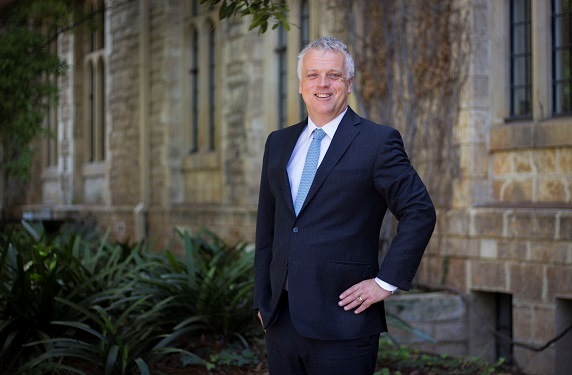It has been, in so many ways, a momentous year and I hope that you will find some time for relaxation and connecting with friends and family over the festive season. Of course, we have had to redefine how we communicate with each other over this year and the holiday season may not be quite the same for many of us. The pandemic has wreaked havoc across the world, exacerbating existing injustices and widening inequalities. It has caused sorrow and suffering, as well as sharply defined isolation as we more fully recognise the inescapable social character of the human condition. Meanwhile, the climate crisis continued and persists in challenging the ways in which we act as individuals, communities, states and as a global society. We also know the pandemic has brought forward new ways of working and accelerated technological trends across many sectors, including Higher Education.
In these contexts, it is opportune to further develop the concept of the Grand Challenges we introduced in the last edition of this newsletter. What are the ways we can bring agency and reclaim some degree of positive impact in the face of these global trends? The article by Demelza Ireland and Caitlyn Wyrwoll speaks powerfully about steps to address unjust and inequitable health outcomes for women and girls in relation to rights for a clean birth. They narrate an initiative to tackle this that involves student activism and leadership, as well as a grass-roots embedding within communities. Tara Broadhurst also explores gendered inequalities in her article on the “leaky pipeline” of women in STEM disciplines and a recent webinar based around the film “Picture a Scientist” provided more sobering examples of women’s experiences and an agenda for change. This was facilitated by the Women in Science Community of Practice (CoP), so again showing the potential for grass-roots agency.
"We know the pandemic has brought forward new ways of working and accelerated technological trends across many sectors, including Higher Education."
Professor David Sadler, Deputy Vice-Chancellor (Education)
The theme of Just and Equitable Society is further explored in the information pieces about The Living Room and the Children’s University. The Living Room is a first for Australian campuses and provides a welcoming and peaceful environment for students and connects them to mental health support and other student services. The Children’s University is an initiative that recognises the role education plays in opening up life chances and is focussed on addressing educational inequalities. I am personally proud to lead UWA into a partnership with ECU on this project. A related theme is explored by Luke Barber, who is a B.Phil student and a Fogarty Foundation scholar. He is active with Teach Learn Grow (TLG) which seeks to bridge the gap between regional/rural areas and metropolitan Australia by igniting the spark of education. As Luke comments, his Fogarty experience has been a very rewarding one and has developed his leadership and broader skills. The focus of how we will strategically approach prestigious student scholarships going forward will be an early item in 2021.
Luke writes that for his generation the future feels uncertain and scary. Petra Tschakert writing about teaching in the climate crisis, shows how we can develop our educational offerings to meet student demands for critical tools and reflexivity to address eco-anxiety and provide some pointers to understanding some of the acutest ethical dilemmas of the current time. Petra is a member of the newly established Climate Change Community of Practice and represents it on the new University Sustainability Committee that I chair. A further article looks at the importance of indigenous knowledge for seagrass renovation in Shark Bay and describes the partnership between the School of Biological Sciences and the Oceans Institute with indigenous rangers.
In the final section, the newsletter explains some of the more important initiatives within the Education portfolio.
There is a piece about the impact of the need for online delivery on the 2020 Teaching Excellence Conference as well as some of the detail of the proceedings. I am struck, again, by the impact and reach of the Communities of Practice.
Finally, as we consider the shape of the University going forward, the Academic Secretary has provided an information brief on the new Boards of Study and I offer my congratulations to the new Chairs of these Boards.
In closing, I thank all of you for all your commitment, professionalism and dedication to our students during this remarkable and unsettling year. Please take time to relax and enjoy the break.
Professor David Sadler
Deputy Vice-Chancellor (Education)

